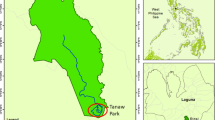Abstract
Tourism in heritage sites pushes back on the criticism of whether or not globalization should be understood as a conflict between creation, civil rights, and the ecosystem, normative ideas often characteristic of specific grounded communities. Tourism in ancient heritage sites has been a popular form for decades and remains so. Therefore, many studies address sustainability issues in these locations by focusing on their economic and environmental aspects. By comparison, fewer studies address social sustainability in historical sites, particularly in the context of developing economies. Given the scarcity of such research, this study explores social-sustainability concerns in Hampi, India. The application of a qualitative methodology with triangulation techniques identified the objective of this study. Reflective thematic analysis identified three main themes: power, politics, and the ongoing tug of war between local people and authorities; heritage tourism development challenges in Hampi; and “what is real,” ie., the concerns of authenticity.
Résumé
Le tourisme sur des sites patrimoniaux vient à l'encontre de la critique sur le point de savoir si la mondialisation doit ou non être comprise comme un conflit entre la création, les droits civils et l'écosystème, ces idées normatives étant souvent la caractéristique de communautés spécifiques bien établies. Le tourisme sur des sites anciens du patrimoine a été une manifestation populaire depuis des décennies et le demeure. Par conséquent, de nombreuses études traitent des questions de durabilité sur ces sites et sont axées sur leurs aspects économiques et environnementaux. Par comparaison, les études sont plus rares concernant l'étude de la durabilité sociale sur les sites historiques, en particulier dans le contexte des économies en voie de développement. Eu égard à la rareté d'une telle recherche, cette étude explore les préoccupations en matière de durabilité sociale à Hampi, en Inde. L'application d'une méthodologie qualitative associée à des techniques de triangulation a identifié l'objectif de cette étude. Une analyse thématique réflective a décelé trois thèmes principaux : le pouvoir, la politique et le bras de fer en cours entre la population locale et les autorités ; les difficultés du développement touristique des sites patrimoniaux à Hampi ; et « ce qui est vrai », à savoir, les préoccupations liées à l'authenticité.
Resumen
El turismo en sitios patrimoniales rechaza las críticas de si la globalización debe entenderse o no como un conflicto entre la creación, los derechos civiles y el ecosistema, ideas normativas a menudo características de comunidades arraigadas específicas. El turismo en los sitios del patrimonio antiguo ha sido una forma popular durante décadas y sigue siéndolo. Por lo tanto, muchos estudios abordan los problemas de sostenibilidad en estos lugares, centrándose en sus aspectos económicos y ambientales. En comparación, menos estudios abordan la sostenibilidad social en sitios históricos, particularmente en el contexto de las economías en desarrollo. Dada la escasez de este tipo de investigación, este estudio explora las preocupaciones de sostenibilidad social en Hampi, India. La aplicación de una metodología cualitativa con técnicas de triangulación identificó el objetivo de este estudio. El análisis temático reflexivo identificó tres temas principales: el poder, la política y el continuo tira y afloja entre la población local y las autoridades; los desafíos del desarrollo del turismo patrimonial en Hampi; y “lo que es real”, es decir, las preocupaciones de autenticidad.






Similar content being viewed by others
References
Al Haija, A. A. (2011). Jordan: Tourism and Conflict with Local Communities. Habitat International, 35(1), 93–100. https://doi.org/10.1016/j.habitatint.2010.04.002
Avieli, N. (2015). The Rise and Fall (?) of Hoi An, a UNESCO World Heritage Site in Vietnam. Journal of Social Issues in Southeast Asia, 30(1), 35–71. https://doi.org/10.1355/sj30-1b
Balakrishnan, M. S. (2009). Strategic Branding of Destinations: A Framework. European Journal of Marketing, 43(5–6), 611–629.
Bear, L., Avieli, N., & Feldman, J. (2021). UNESCO World Heritage Sites: Shared Shrines or Contested Sanctuaries? The Case of the Buddhist Temples of Luang Prabang, Laos. Journal of Heritage Tourism, 16(1), 1–19. https://doi.org/10.1080/1743873X.2020.1759609
Benur, A. M., & Bramwell, B. (2015). Tourism Product Development and Product Diversification in Destinations. Tourism Management, 50, 213–224. https://doi.org/10.1016/j.tourman.2015.02.005
Bloch, N. (2017). Barbarians in India. Tourism as Moral Contamination. Annals of Tourism Research, 62, 64–77. https://doi.org/10.1016/j.annals.2016.12.001
Braun, V., & Clarke, V. (2021). One Size Fits All? What Counts as Quality Practice in (Reflexive) Thematic Analysis? Qualitative Research in Psychology, 18(3), 328–352. https://doi.org/10.1080/14780887.2020.1769238
Brumann, C. (2014). Heritage Agnosticism: A Third Path for the Study of Cultural Heritage. Social Anthropology, 22(2), 173–188. https://doi.org/10.1111/1469-8676.12068
Caust, J., & Vecco, M. (2017). Is UNESCO World Heritage Recognition a Blessing or Burden? Evidence from Developing Asian Countries. Journal of Cultural Heritage, 27, 1–9. https://doi.org/10.1016/j.culher.2017.02.004
Crespi-Vallbona, M., & Richards, G. (2007). The Meaning of Cultural Festivals. International Journal of Cultural Policy, 13(1), 103–122. https://doi.org/10.1080/10286630701201830
Farmaki, A., & Antoniou, K. (2017). Politicising Dark Tourism Sites: Evidence from Cyprus. Worldwide Hospitality and Tourism Themes, 9(2), 175–186. https://doi.org/10.1108/WHATT-08-2016-0041
Fiskesjö, M. 2010. Politics of Cultural Heritage. In Reclaiming Chinese Society. The New Social Activism edited by Y.-T. Hsing and C. K. Lee. Routledge, London.
Gao, Q., & Jones, S. (2021). Authenticity and Heritage Conservation: Seeking Common Complexities Beyond the ‘Eastern’ and ‘Western’ Dichotomy. International Journal of Heritage Studies, 27(1), 90–106. https://doi.org/10.1080/13527258.2020.1793377
Girard, L. F., & Nijkamp, P. (2009). Cultural Tourism and Sustainable Local Development. Burlington: Ashgate Publishing Ltd.
Gunarekha, B. S., & Binoy, T. A. (2017). Community Based Sustainable Tourism Development in Karnataka: A Study on Mysuru District. Asia-Pacific Journal of Research, 50(1), 121–126.
Herzfeld, M. (2006). Spatial Cleansing. Journal of Material Culture, 11(1–2), 127–149. https://doi.org/10.1177/1359183506063016
Ivanova, M., & Buda, D.-M. (2020). Thinking Rhizomatically About Communist Heritage Tourism. Annals of Tourism Research, 84, 103000. https://doi.org/10.1016/j.annals.2020.103000
Jones, S. (2010). Negotiating Authentic Objects and Authentic Selves. Journal of Material Culture, 15(2), 181–203. https://doi.org/10.1177/1359183510364074
Kozak, M., & Martin, D. (2012). Tourism Life Cycle and Sustainability Analysis: Profit-Focused Strategies for Mature Destinations. Tourism Management, 33(1), 188–194. https://doi.org/10.1016/j.tourman.2011.03.001
Lemon, L., & Hayes, J. (2020). Enhancing Trustworthiness of Qualitative Findings: Using Leximancer for Qualitative Data Analysis Triangulation. The Qualitative Report. https://doi.org/10.46743/2160-3715/2020.4222
Li, M., Wu, B., & Cai, L. (2008). Tourism Development of World Heritage Sites in China: A Geographic Perspective. Tourism Management, 29(2), 308–319. https://doi.org/10.1016/j.tourman.2007.03.013
Li, Y., Lau, C., & Su, P. (2020). Heritage Tourism Stakeholder Conflict: A Case of a World Heritage Site in China. Journal of Tourism and Cultural Change, 18(3), 267–287. https://doi.org/10.1080/14766825.2020.1722141
Lieber, R. J., & Weisberg, R. E. (2002). Globalization, Culture, and Identities in Crisis. International Journal of Politics, Culture, and Society, 16, 273–296. https://doi.org/10.1023/A:1020581114701
Markwick, M. (1999). Malta’s Tourism Industry Since 1985: Diversification, Cultural Tourism and Sustainability. Scottish Geographical Journal, 115(3), 227–247. https://doi.org/10.1080/00369229918737066
Mbaiwa, J. E. (2011). Changes on Traditional Livelihood Activities and Lifestyles Caused by Tourism Development in the Okavango Delta, Botswana. Tourism Management, 32(5), 1050–1060. https://doi.org/10.1016/j.tourman.2010.09.002
McCool, S. F. (2009). Constructing Partnerships for Protected Area Tourism Planning in an Era of Change and Messiness. Journal of Sustainable Tourism, 17(2), 133–148. https://doi.org/10.1080/09669580802495733
McDowell, S. (2008). Selling Conflict Heritage Through Tourism in Peacetime Northern Ireland: Transforming Conflict or Exacerbating Difference? International Journal of Heritage Studies, 14(5), 405–421. https://doi.org/10.1080/13527250802284859
McKercher, B. (1993). Some Fundamental Truths About Tourism: Understanding Tourism’s Social and Environmental Impacts. Journal of Sustainable Tourism, 1(1), 6–16. https://doi.org/10.1080/09669589309450697
McKercher, B., Ho, P. S. Y., & du Cros, H. (2005). Relationship Between Tourism and Cultural Heritage Management: Evidence from Hong Kong. Tourism Management, 26(4), 539–548. https://doi.org/10.1016/j.tourman.2004.02.018
Mumma, A. (2003). Community-Based Legal Systems and the Management of World Heritage Sites. World Heritage Papers, pp. 43–44. https://whc.unesco.org/en/activities/560/.
Murzyn-Kupisz, M., & Działek, J. (2013). Cultural Heritage in Building and Enhancing Social Capital. Journal of Cultural Heritage Management and Sustainable Development, 3(1), 35–54. https://doi.org/10.1108/20441261311317392
Nuryanti, W. (1996). Heritage and Postmodern Tourism. Annals of Tourism Research, 23(2), 249–260. https://doi.org/10.1016/0160-7383(95)00062-3
Okech, R. N. (2010). Socio-cultural Impacts of Tourism on World Heritage Sites: Communities’ Perspective of Lamu (Kenya) and Zanzibar Islands. Asia-Pacific Journal of Tourism Research, 15(3), 339–351. https://doi.org/10.1080/10941665.2010.503624
Pakkeerappa, P., & Thomas, J. (2006). Strategic Role of Hampi Development Authority in Promoting Tourism in Karnataka: A Study. Atna Journal of Tourism Studies, 1(1), 86–95.
Porter, B. W., & Salazar, N. B. (2005). Heritage Tourism, Conflict, and the Public Interest: An Introduction. International Journal of Heritage Studies, 11(5), 361–370. https://doi.org/10.1080/13527250500337397
Retheesh, P. T. (2019). Assessing Opportunities and Constraints of Community Engagement in Tourism Development at Hampi. Christ University. http://archives.christuniversity.in/disk0/00/00/78/95/01/Rethesh_P_T_1720032.pdf.
Rhodes, R. A. W. (1996). The New Governance: Governing Without Government. Political Studies, 44(4), 652–667. https://doi.org/10.1111/j.1467-9248.1996.tb01747.x
Robinson, M., & Priscilla, B. (1999). Tourism and Cultural Conflicts. Wallingford: CAB International.
Ryan, J., & Silvanto, S. (2010). World Heritage Sites: The Purposes and Politics of Destination Branding. Journal of Travel and Tourism Marketing, 27(5), 533–545. https://doi.org/10.1080/10548408.2010.499064
Settar, S. (2017). Introducing Hampi: Insights from Literary and Historical Sources. In Digital Hampi: Preserving Indian Cultural Heritage, pp. 11–29. Springer, Singapore. doi: https://doi.org/10.1007/978-981-10-5738-0_2.
Sharma, S., Sinha, S., & Sahoo, D. (2021). Evolving Host Socio-demographical Determinants Towards Himalayan Handicraft Industry. International Journal of Asian Business and Information Management, 12(3), 1–13. https://doi.org/10.4018/IJABIM.293276
Shepherd, R. J. (2015). Why Heidegger Did Not Travel: Existential Angst, Authenticity, and Tourist Experiences. Annals of Tourism Research, 52, 60–71. https://doi.org/10.1016/j.annals.2015.02.018
Sirima, A., & Backman, K. F. (2013). Communities’ Displacement from National Park and Tourism Development in the Usangu Plains, Tanzania. Current Issues in Tourism, 16(7–8), 719–735. https://doi.org/10.1080/13683500.2013.785484
Smith, L. (2006). Heritage, Gender and Identity. In The Routledge Research Companion to Heritage and Identity, pp. 159–178. Routledge, London.
Stoffelen, A. (2022). Revitalising Place-Based Commercial Heritage: A Cultural Political Economy Approach to the Renaissance of Lambic Beers in Belgium. International Journal of Heritage Studies, 28(1), 16–29. https://doi.org/10.1080/13527258.2020.1862275
Su, X., Li, X., Chen, W., & Zeng, T. (2020). Subjective Vitality, Authenticity Experience, and Intangible Cultural Heritage Tourism: An Empirical Study of the Puppet Show. Journal of Travel and Tourism Marketing, 37(2), 258–271. https://doi.org/10.1080/10548408.2020.1740141
Swain, M. B. (2013). Chinese Cosmopolitanism (Tianxia He Shijie Zhuyi) in China’s Heritage Tourism. In Cultural Heritage Politics in China, pp. 33–50. Springer, New York. doi: https://doi.org/10.1007/978-1-4614-6874-5_3.
Wang, Y., & Bramwell, B. (2012). Heritage Protection and Tourism Development Priorities in Hangzhou, China: A Political Economy and Governance Perspective. Tourism Management, 33(4), 988–998. https://doi.org/10.1016/j.tourman.2011.10.010
Winter, T. (2007). Post-conflict Heritage, Postcolonial Tourism. In Tourism, Politics and Development at Angkor. Routledge. doi: https://doi.org/10.4324/9780203946381.
Zhang, C., Fyall, A., & Zheng, Y. (2015). Heritage and Tourism Conflict Within World Heritage Sites in China: A Longitudinal Study. Current Issues in Tourism, 18(2), 110–136. https://doi.org/10.1080/13683500.2014.912204
Zhang, Y., Lee, T. J., & Xiong, Y. (2019). A Conflict Resolution Model for Sustainable Heritage Tourism. International Journal of Tourism Research, 21(4), 478–492. https://doi.org/10.1002/jtr.2276
Zhu, Y., and N. Li. (2013). Groping for Stones to Cross the River: Governing Heritage in Emei. In Cultural Heritage Politics in China, pp. 51–71. Springer, New York. doi: https://doi.org/10.1007/978-1-4614-6874-5_4.
Zhuravlev, O., Savelyeva, N., & Erpyleva, S. (2020). The Cultural Pragmatics of an Event: The Politicization of Local Activism in Russia. International Journal of Politics, Culture, and Society, 33(2), 163–180. https://doi.org/10.1007/s10767-019-9321-6
Author information
Authors and Affiliations
Corresponding author
Ethics declarations
Conflict of interest
No potential conflict of interest.
Ethical Approval
The carried out study involved only human participation and did not include any animals.
Informed Consent
Each participant was informed about the study and their consent was obtained before recording their responses.
Additional information
Publisher's Note
Springer Nature remains neutral with regard to jurisdictional claims in published maps and institutional affiliations.
Rights and permissions
Springer Nature or its licensor holds exclusive rights to this article under a publishing agreement with the author(s) or other rightsholder(s); author self-archiving of the accepted manuscript version of this article is solely governed by the terms of such publishing agreement and applicable law.
About this article
Cite this article
Nair, B.B., Sinha, S. & Dileep, M.R. Who Owns the Heritage? Power and Politics of Heritage Site Management in Tourism, Hampi, India. Arch 19, 276–298 (2023). https://doi.org/10.1007/s11759-022-09459-w
Accepted:
Published:
Issue Date:
DOI: https://doi.org/10.1007/s11759-022-09459-w




